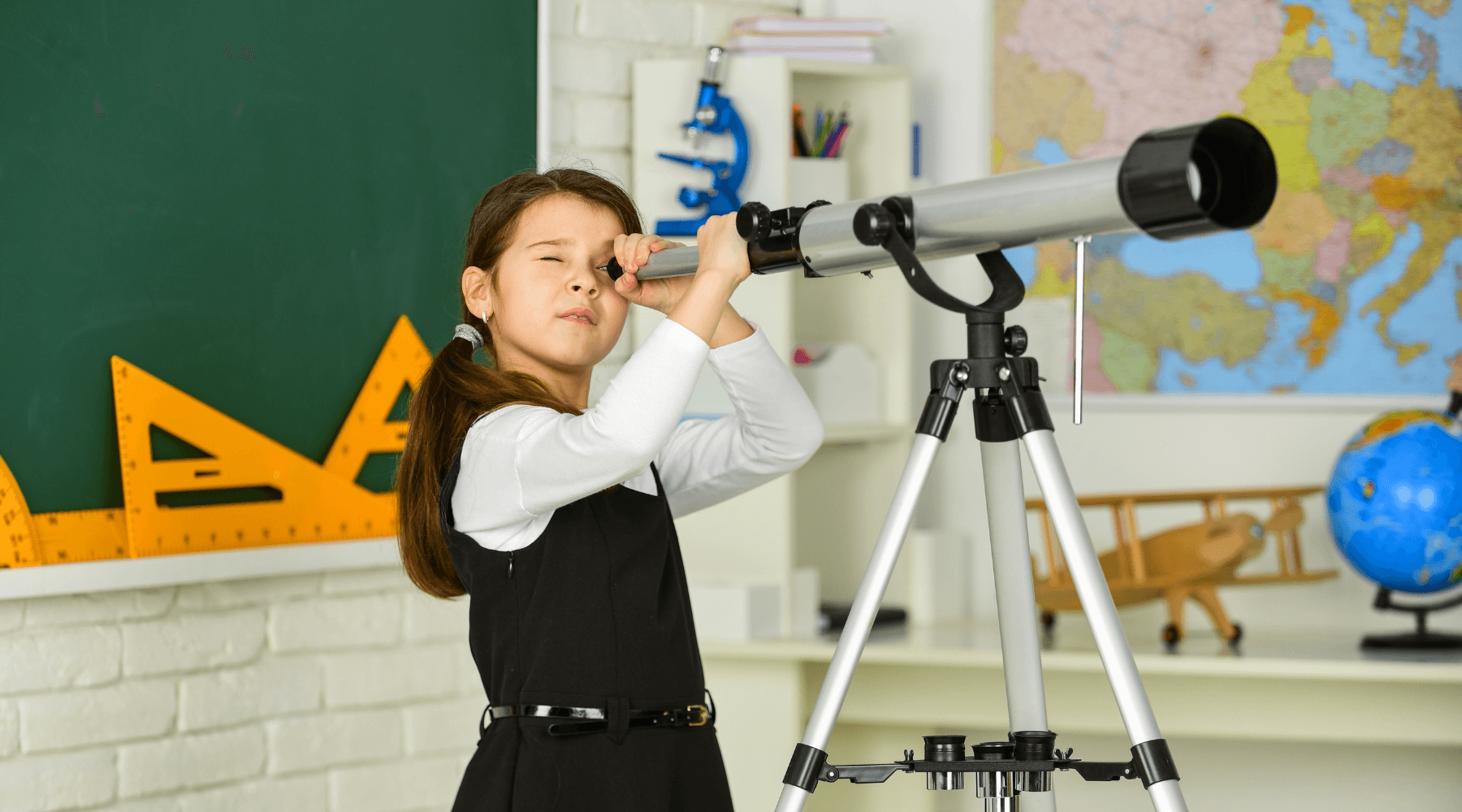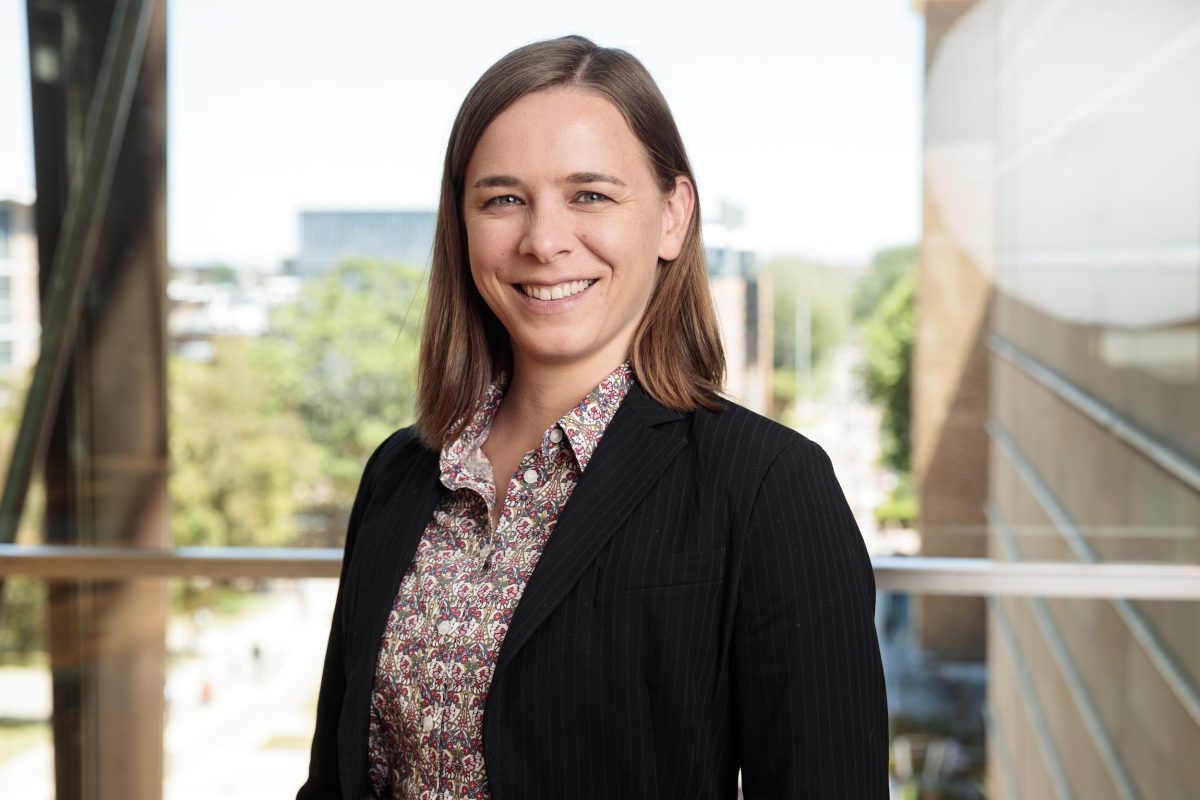
In the next instalment of our series, 'So you want to be...' Natalie Moutafis speaks with Professor Lisa Harvey-Smith, award-winning astrophysicist, author and the Australian Government Women in STEM Ambassador.
We’re sharing some varied careers with you to discuss with the young people in your life who are beginning to think about the careers they’d like to pursue.
In this next instalment of our ‘So you want to be…‘ career series, Natalie Moutafis speaks with Professor Lisa Harvey-Smith about how she turned her love of stargazing into a career. You can also listen to their chat on isPodcast.
When did you know you wanted this career?
When I was 12 years old, I went outside one night with my Dad and we looked at the planet Mars. It was an incredible experience and I immediately fell in love with astronomy. I joined my local astronomical society and read all the books I could get my hands on. I also became a regular stargazer, and that’s when I knew I wanted to be an astronomer, or astrophysicist (these terms are interchangeable).
Did you choose subjects in high school to aid you in this career path?
I actually didn’t go to high school, I taught myself at home. There, I focused on a lot of music, poetry, literature, philosophy, history maths and science. But at the business end of my education aged 16-18 I went to college and studied for my A-levels (this was in the UK) in Physics, Maths and Chemistry. This was two years highly focused on these scientific subjects.
Did you undertake further education (University, TAFE, on the job training etc.) for this career?
Yep, I went to the University of Newcastle-upon-Tyne and gained a four-year undergraduate Masters degree in physics with Honours in astronomy and astrophysics. I then went to the University of Manchester and studied for three years for my Ph.D. in radio astronomy. That was more like a job than study, I taught undergraduate students and ran my own independent research programs, only meeting my supervisor once a week at most.
What do you love about your career?
Working in astronomy research means that you are continually learning and developing new skills. I love how passionate and dedicated people are to their work, and I love being a part of teams that build new telescopes, tools and projects that will lead to giant leaps in our understanding of the universe. It’s a good mix of quiet, focused work (e.g. writing code, analysing data and writing papers) and longer-term collaborative work like planning for new projects with many other scientists around the world.
What do you wish you knew about your career before you started?
The culture of universities and research-focused organisations means that you are often encouraged to stay in one particular field of research, and focus very heavily only on academic things. That means doing similar work over and over again, which doesn’t suit me. There are many examples of working environments where that may not be the case, for example if you work in industry or if you start a business based on your research.
I also love sharing astronomy with others, writing books, performing, speaking with the public, presenting TV shows about astronomy, changing societal attitudes to gender and STEM, informing government policy and inspiring a better future. In the very research-focused organisations I’ve worked in, I have faced resistance from scientist colleagues, as well as structural barriers preventing me from flourishing in this broader work, which is a shame. I am now much happier in a role where I get to do research, inform government policy and inspire the next generation. The upshot of this is that you need to pick the right spot for you, your aspirations and interests. This might change throughout your career.
Any advice to students contemplating this as a career path?
Study hard, technical STEM subjects whilst you’re young – there is no shortcut for this. Then you can blaze your own trail, and find a job where you can express your passions, beliefs and use your skills to create a better world that you want to see.

About Professor Lisa Harvey-Smith
Professor Lisa Harvey-Smith is an award-winning astrophysicist and author with a talent for making the universe accessible to all. She has published more than 50 research papers in astrophysics and played a key role in the development of the Square Kilometre Array (SKA) and Australian SKA Pathfinder telescopes. She is a member of the advisory group to the Australian Space Agency, the Questacon board, a Professor of Practice at the University of New South Wales.
You can stay in touch with Professor Lisa Harvey-Smith through her website, and on Twitter, Facebook, Instagram and LinkedIn.
Like this post? Please share using the buttons on this page.
Stay up to date with our newsletter here

